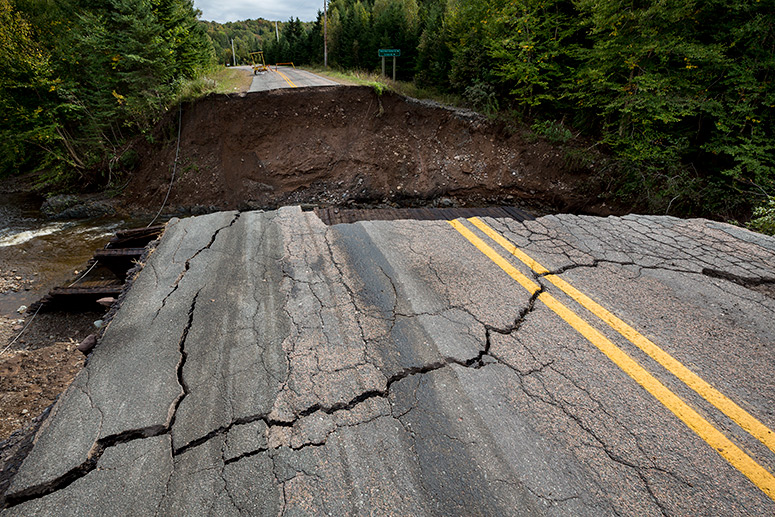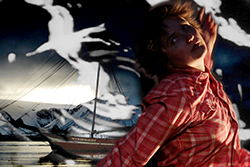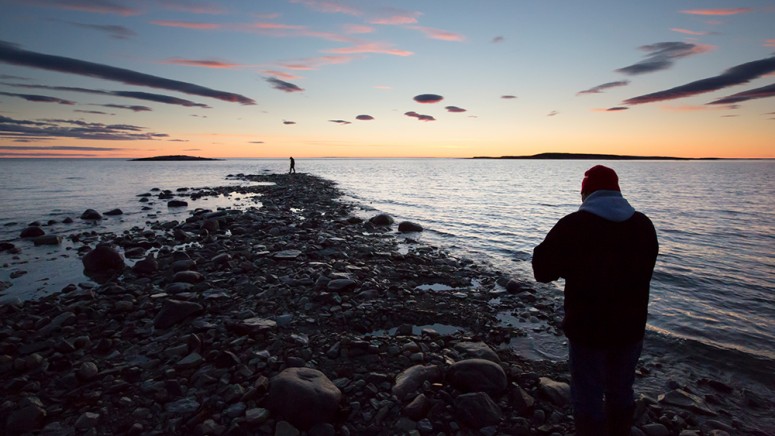Climate Change Atlantic
Ian Mauro, Craig Norris, Ben Phillips + Marc Labelle
Photography, archival pigment prints, 2013; Interactive iPad installation, 2013
Roloff Beny Gallery, ROM Level 4

Climate change is making rain events more intense and water-related infrastructure across Atlantic Canada is simply not designed to accommodate this new reality.
Spanning Atlantic Canada, this project explores the cartographies of knowledge regarding climate change, its impacts on coastal communities, and how people are responding through mitigation and adaptation. Norris’ photos and the team’s iPad mini-documentaries reflect on the region in this time of immense change.
Learn more about this project online: www.climatechangeatlantic.com
Ian Mauro
Ian Mauro, PhD, is a Canada Research Chair in human dimensions of environmental change. As both a scientist and filmmaker, he has directed projects on climate change in both the Arctic and Atlantic regions. He is interested in local and indigenous knowledge and its collection, conservation and communication using digital media.
Craig Norris
Craig Norris is a documentary photographer and filmmaker interested in emerging media and contemporary visual storytelling. His work has explored a variety of themes ranging from labour conditions in Central America to music festival subcultures. His latest projects focus on climate change and the environment.
Ben Phillips
Ben Phillips is the Conservation Manager for the UNESCO designated Fundy Biosphere Reserve. As both an environmental scientist and fine artist, he focuses on the integration of both science and art for increasing community engagement and understanding regarding environmental issues in the Atlantic region and beyond.
Marc Labelle
Marc Labelle is a graphic designer and animator, living in Fredericton, New Brunswick. His projects have focussed on health, education, and environmental issues and he is responsible for all graphics, maps, and animations in the Arctic and Atlantic exhibits.
Adapting and Mitigating: Solutions for Future Generations of Coastal Communities
Ben Phillips
Conservation Manager, Fundy Biosphere Reserve
When engaging in conversation with local knowledge holders, community leaders, and scientists from across Atlantic Canada, their primary concerns are about communities being inundated by the sea, the costs associated with maintaining these vulnerable regions, and the realization that, one day, retreat and abandonment may be the only option. However, Atlantic Canadians are also firmly rooted in place, and know that collaborative planning between scientists, locals, and policymakers is critical as communities and governments grapple with these new environmental realities. While adapting to environmental change is important, people are increasingly motivated to deal with climate change at its source, and this means decarbonizing our economies for the benefit of current and future generations.
Multimedia Extras
Climate Change in Atlantic Canada Trailer a feature film by Ian Mauro.













